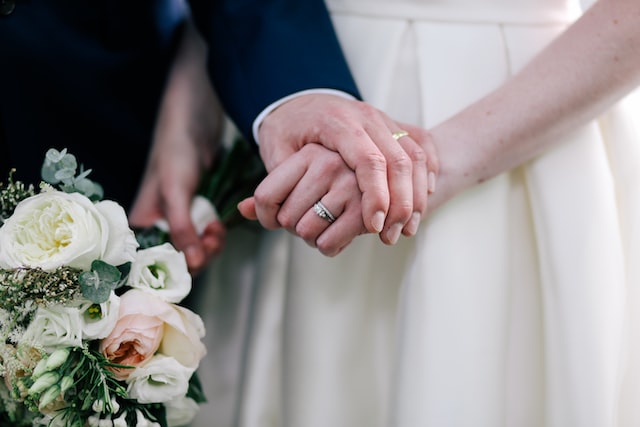For foreigners, getting married in Thailand can be a complicated affair. This is especially true if you require your marriage to be registered in the country of your residence or for it to be recognized abroad.
For the purpose of marriage registration, both parties must present themselves in person with their passports at their home embassy in Thailand to complete declarations that they are single and free to marry under Thai law. Then the embassy documents are brought to a local district office for legalization.
Affirmation of Freedom to Marry
If you’re planning to get married in Thailand, there are some important steps you need to take if you want your Thailand marriage to be legal under Thai law and internationally recognized. The first step is to obtain an Affirmation of Freedom to Marry from your country’s embassy in Bangkok. This document proves that you are free to marry in Thailand and must be countersigned by your embassy before it is accepted by the local registration office (also known as an amphur or khet).
You may need additional documents for registration depending on your situation, including passport biodata pages, visas, and proof of payment of any translation, legalization, or registration fees. You can also require two witnesses who are Thai citizens.
When you receive your affirmation, you’ll need to have it translated into Thai by a certified translator. Most embassy websites have lists of approved translators, or you can find one through a government-approved list of translation agencies. The translation must then be authenticated by the Ministry of Foreign Affairs in Bangkok or at a regional office.
You’ll also need to bring your Affirmation of Freedom to Marry, a copy of your passport, and all the other required documents to your local district office (also called an amphur or khet). The registration officer will verify that you meet all the requirements and sign your marriage certificate. You can then make any necessary arrangements to have your wedding ceremony at the venue of your choice in Thailand.
Documents Required
A legal Thai marriage consists of the two parties registering their union with the local Amphur (Thai district office, similar to a county office). All foreigners wishing to marry in Thailand must first obtain official certification from their country’s embassy that they are free to marry. Each embassy has its own procedure for issuing this documentation. This process can take several days and requires a passport, arrival card, and certified translations of various documents.
In addition to the above documentation, a letter of consent must be presented by either party’s parent or guardian. The couple must also show a doctor’s certificate affirming that they are both not pregnant. For women who have been married previously, a divorce certificate or court’s judgment must be provided. Under Thai law, a woman may not remarry until 310 days have passed since the end of her previous marriage, except in cases of childbirth or death.
The registrar will verify all documentation and will issue the couple their marriage certificate. This is usually done within two working days of receiving all required documentation. After the marriage certificate is issued, it must be translated and legalized in order to be recognized by embassies abroad. If you have any questions about the above or would like to schedule an appointment with one of our marriage specialists, please don’t hesitate to contact us.
Legalization
Getting married in Thailand can be a time consuming and confusing process. To make the process easier and less stressful you can hire a wedding planning service to help with all of the legal aspects. They can assist with the preparation of documents needed to register the marriage and make sure all paperwork is properly filled out and submitted. They can also help you obtain a visa to live with your wife in Thailand.
The first step is to obtain a letter or certificate of no impediment to marry from your country’s embassy in Thailand. The requirements vary by embassy, so it is best to contact them in advance for specific instructions. The embassy-issued document must then be translated into Thai by a recognized translation service and then taken to the Ministry of Foreign Affairs for legalization.
After the translation and legalization process is complete, the couple can apply for their marriage registration at any district office or “Amphur” in the country. The registrar will then issue the official Marriage Certificate, which is valid worldwide.
The couple can request to have a short marriage registration ceremony at the office of their choice. The couple may then take the Marriage Certificate to their local embassy for further legalization if required in their home country. If the marriage is registered in the district office of the woman’s birthplace, the registrar will change her title used with her forename and last name to reflect the change in her house registration certificate.
Registration
If you are looking for legalize your Thailand marriage, you’ll need to go through a process known as “marriage registration.” This will require you to have a letter of affirmation as well as MFA certification. This is necessary because you can’t apply to live in Thailand as a spouse without it. Moreover, the marriage is only valid in Thailand and your home country if it’s registered here. Therefore, it’s best to have your Thailand marriage registration completed before you start planning your dream wedding or acquiring a Thai visa.
First, you must obtain a letter of affirmation from your home country’s embassy in Thailand that states that you are free to marry (see your embassy’s website for details). Once you have this, take it to a translation office where the affidavit is translated into Thai and then authenticated by the Ministry of Foreign Affairs.
Once the translated documents are verified, you can go to any district office in Thailand known as an “Amphur” or a “Khet” to register your marriage. This is a fairly simple process and once done, you’ll have a legally binding marriage that will be recognized in the US, Australia, and other countries around the world. In addition, you can also opt to have a prenuptial agreement that will be registered at the same time as your marriage.






